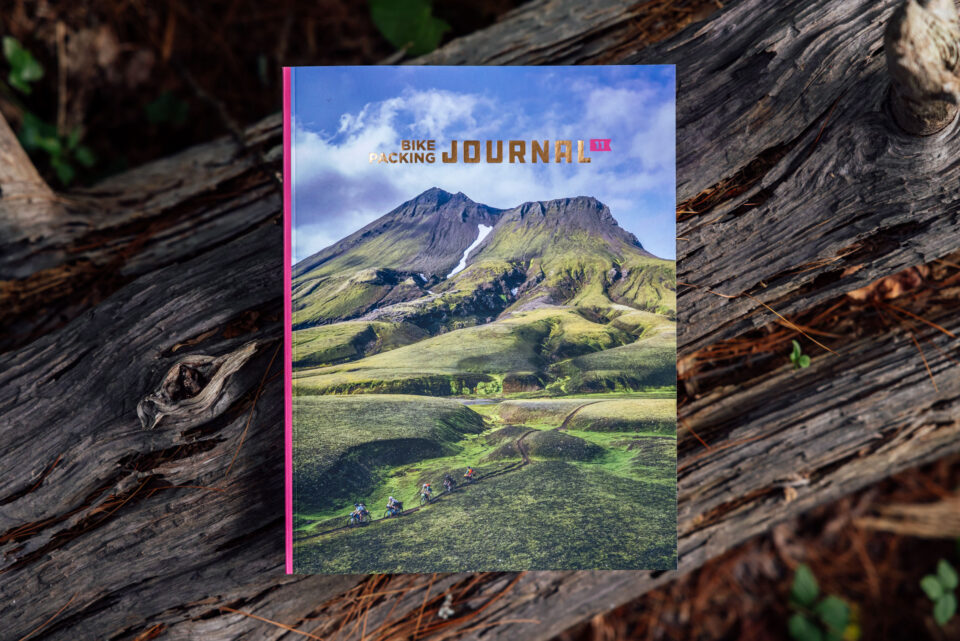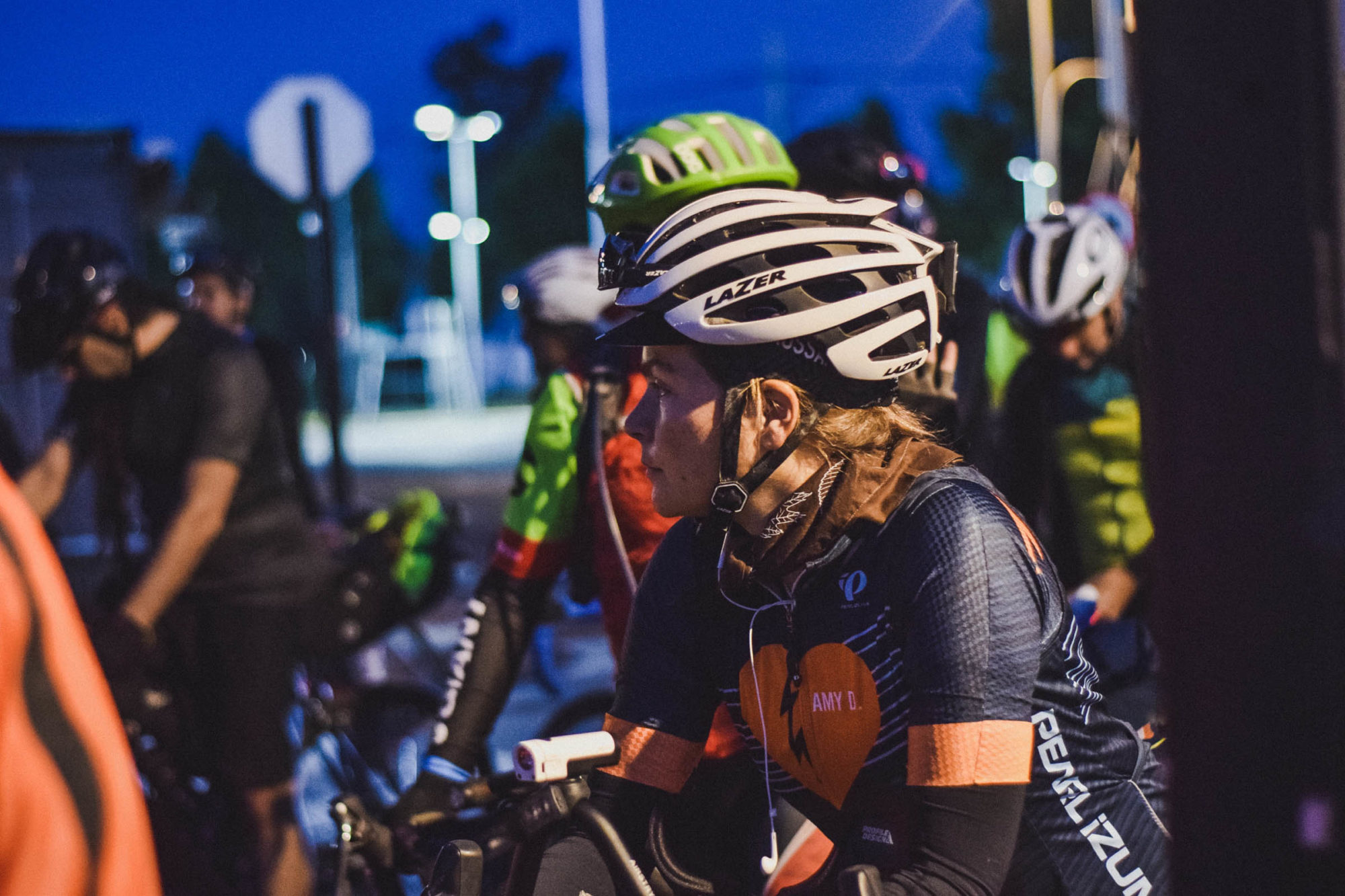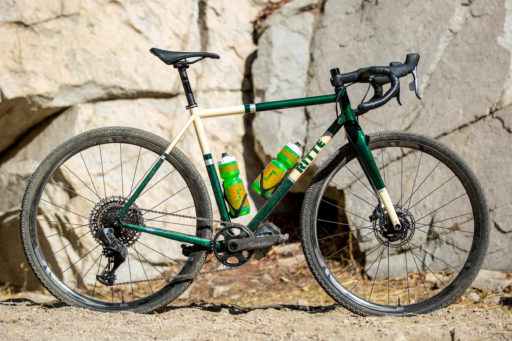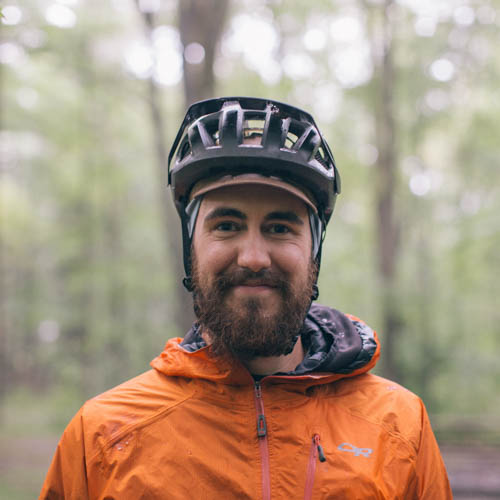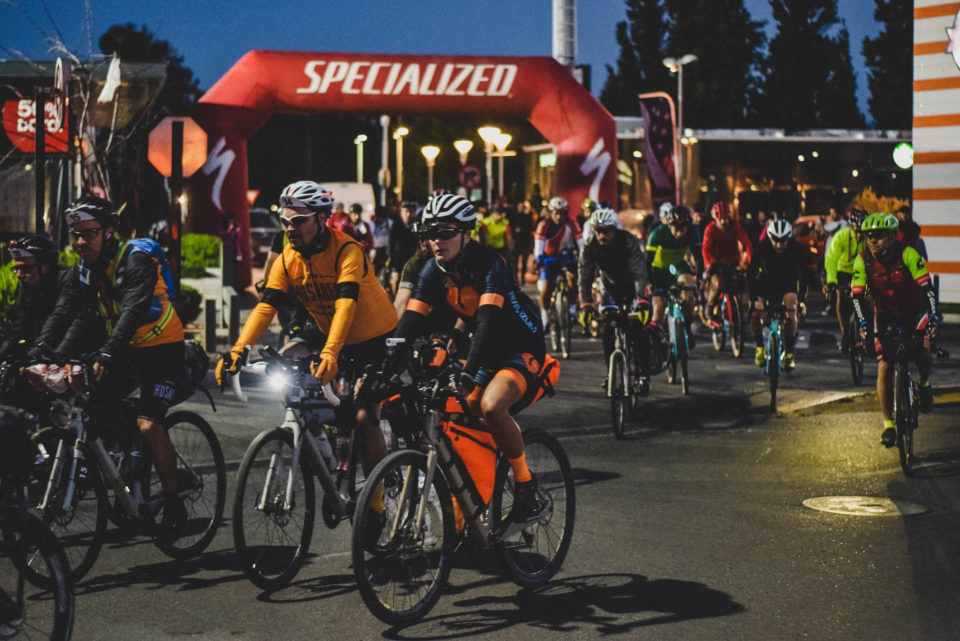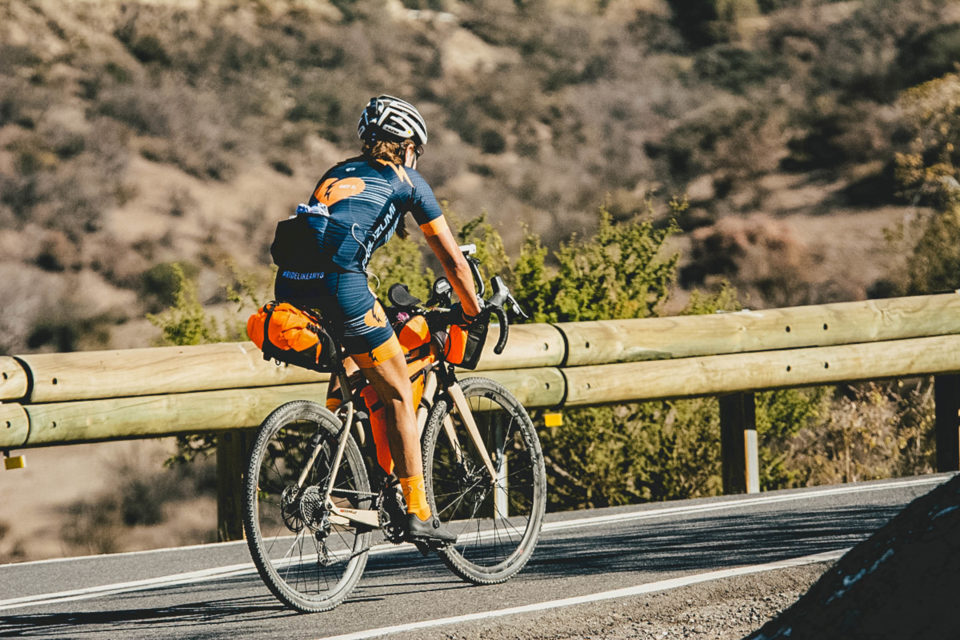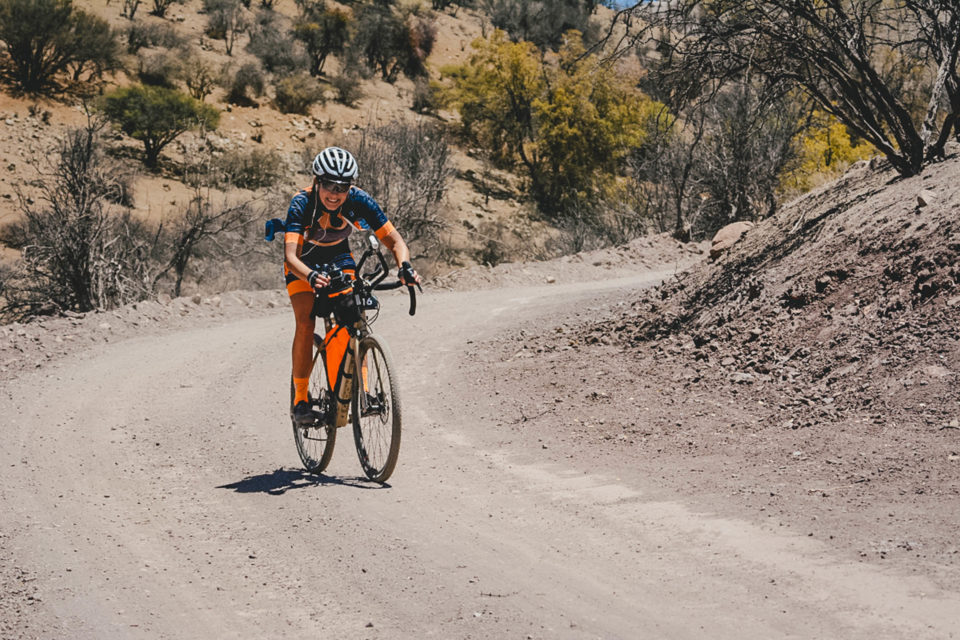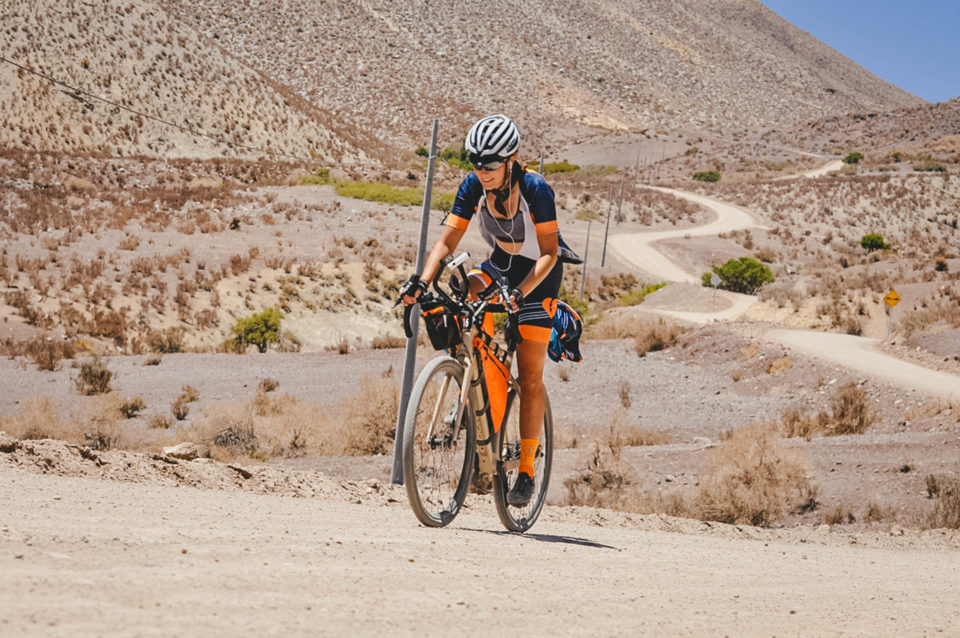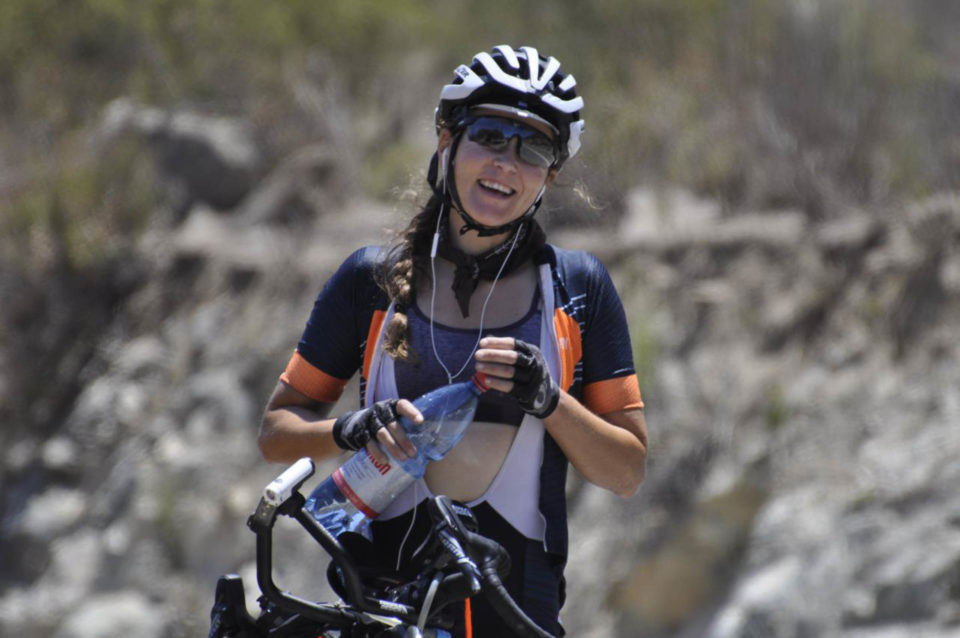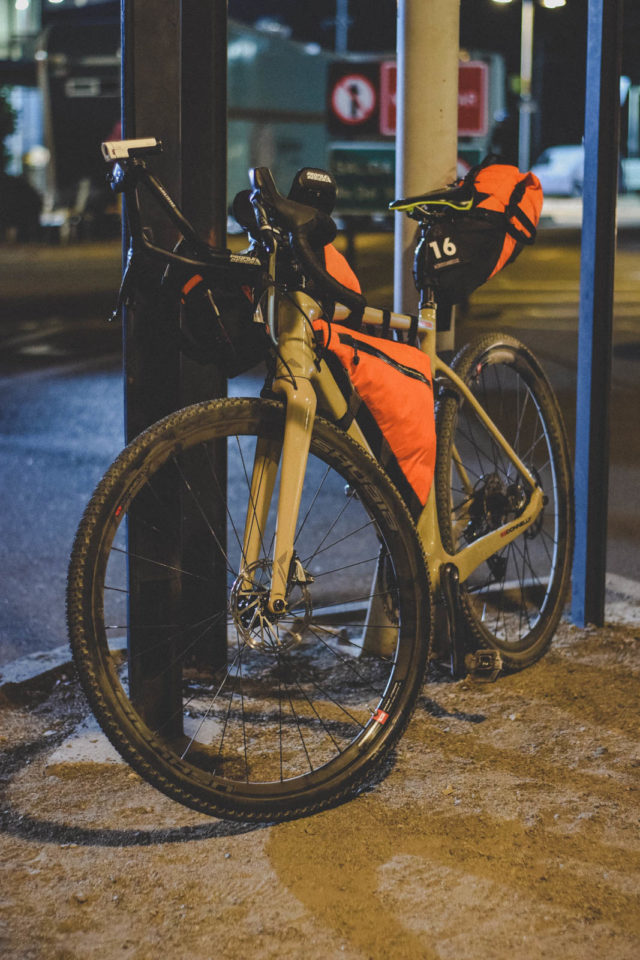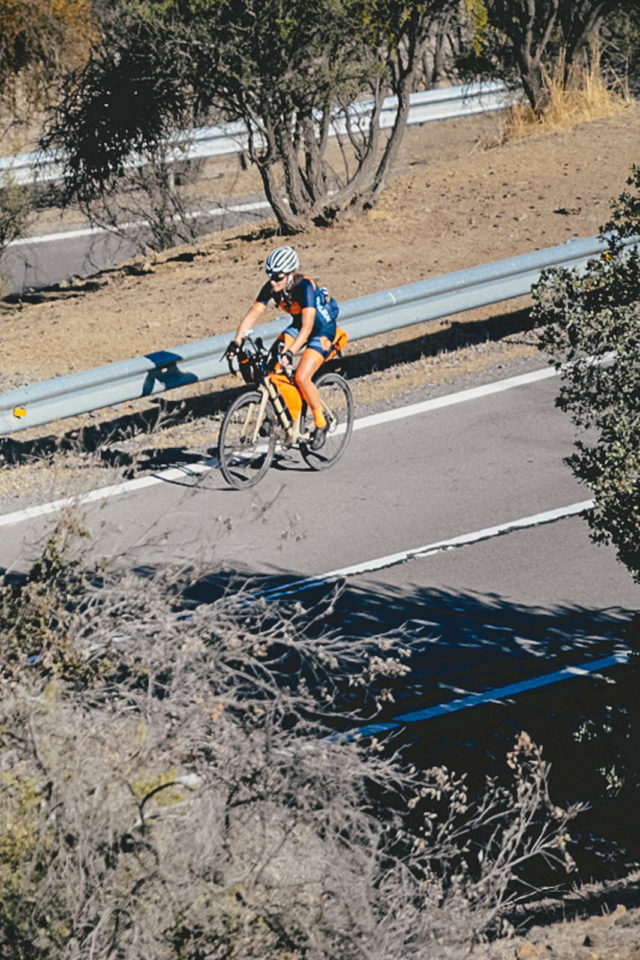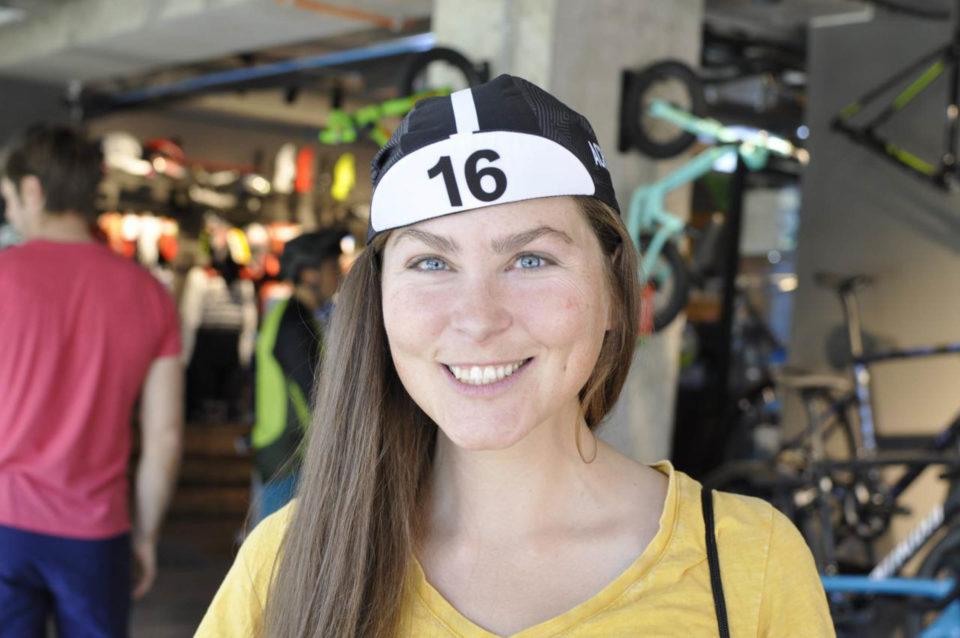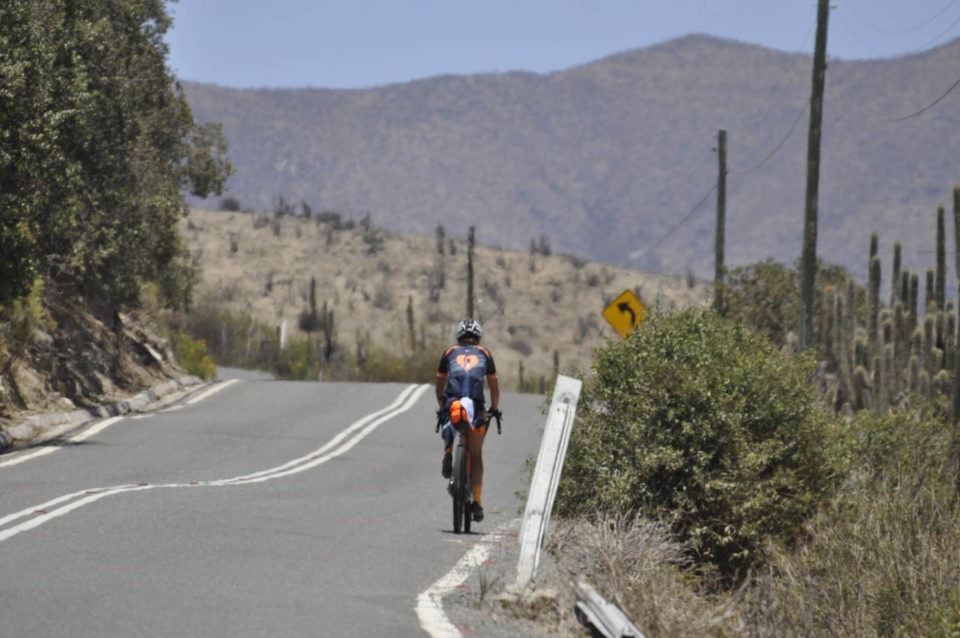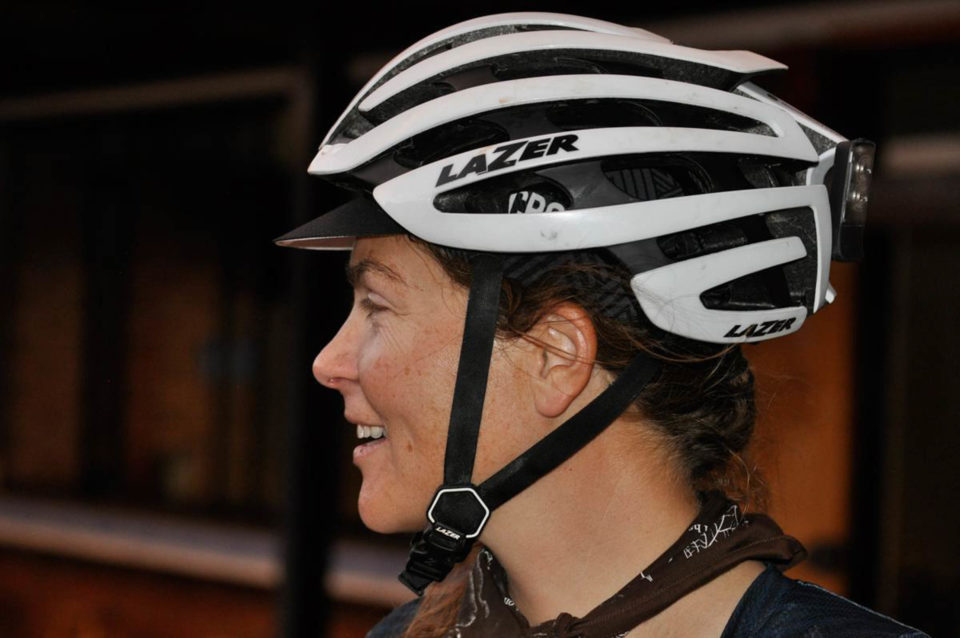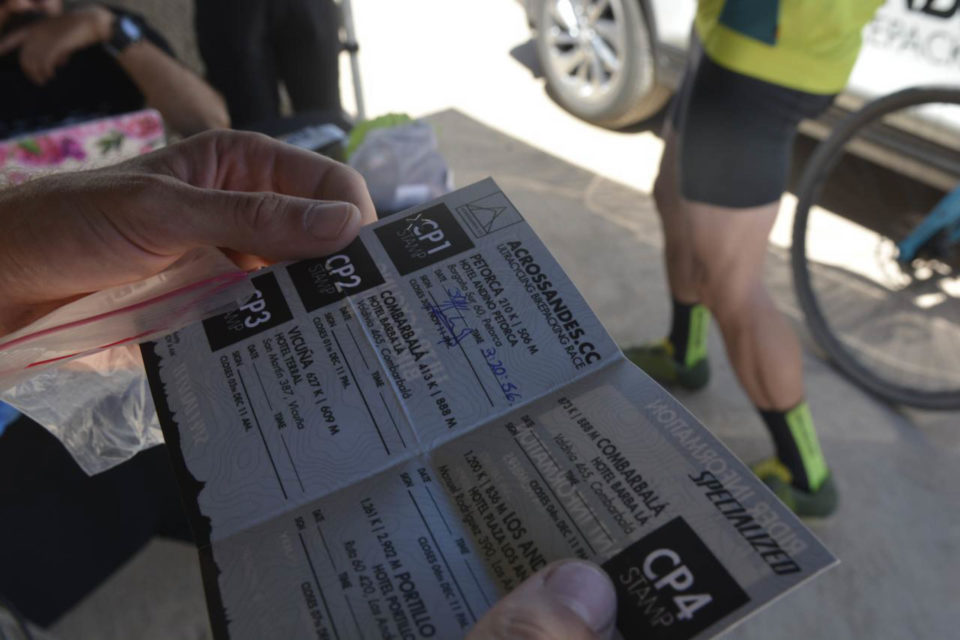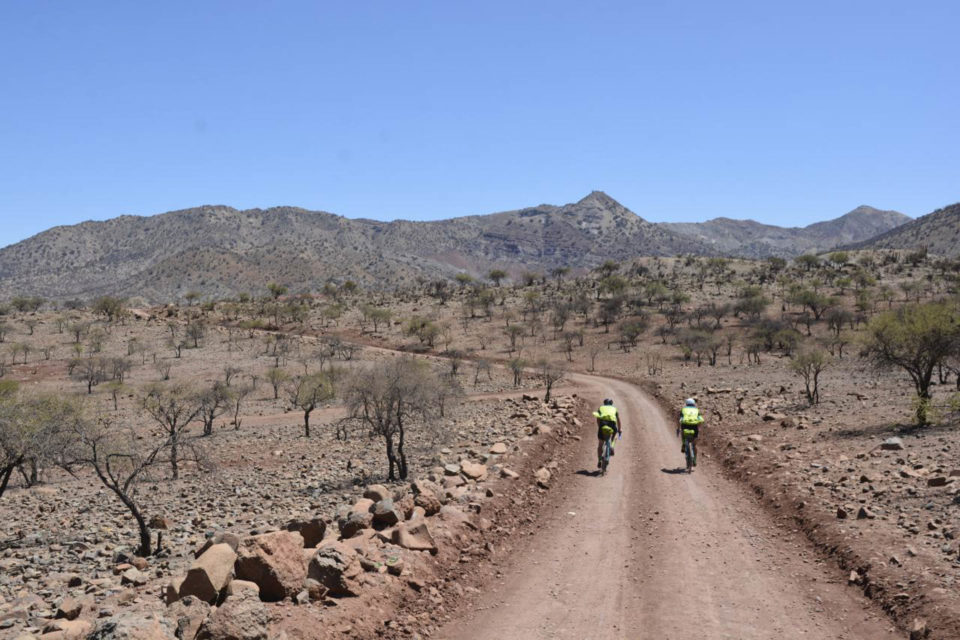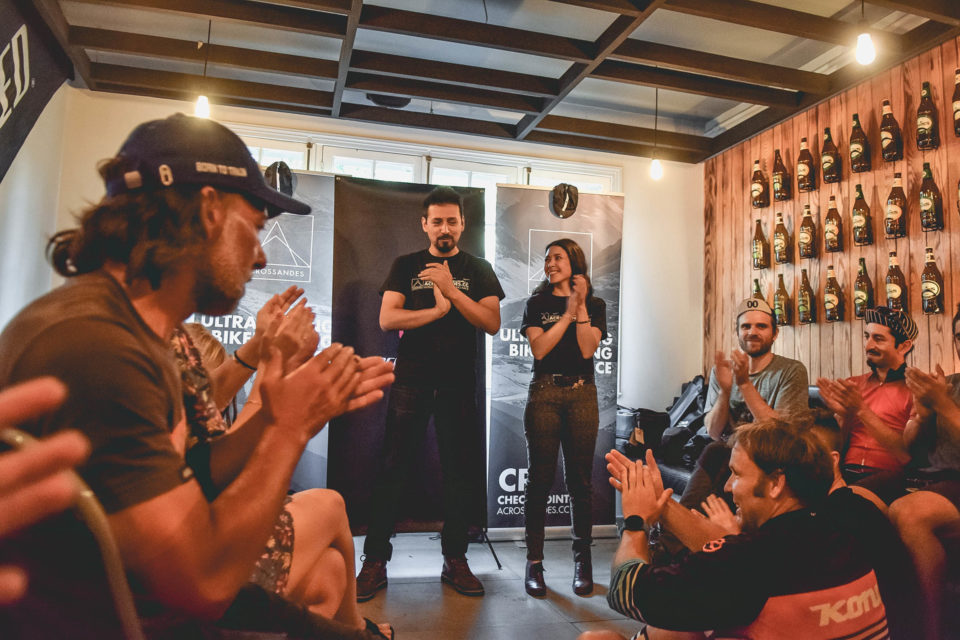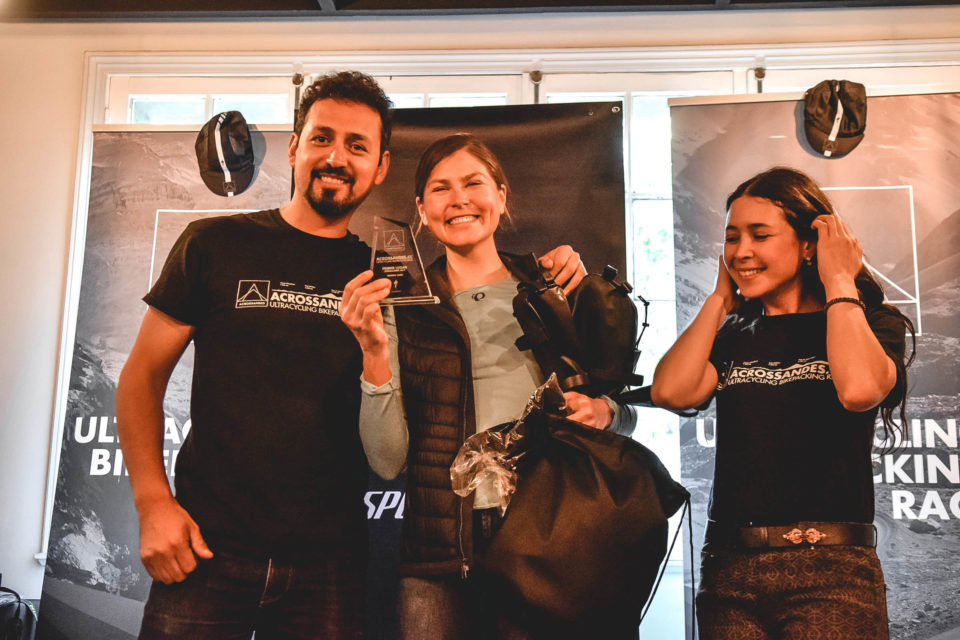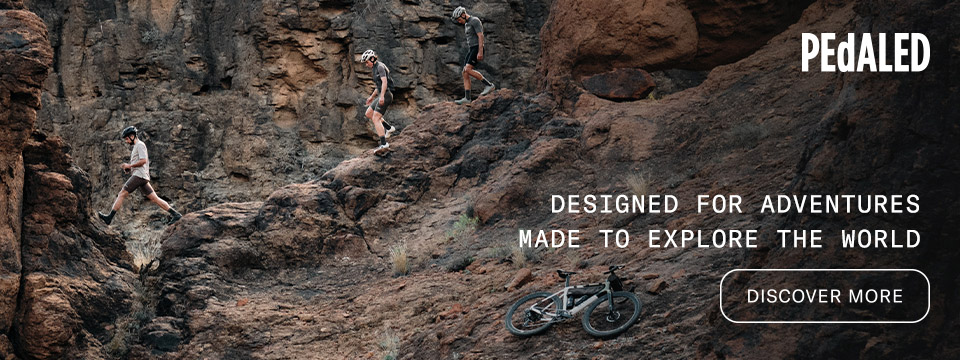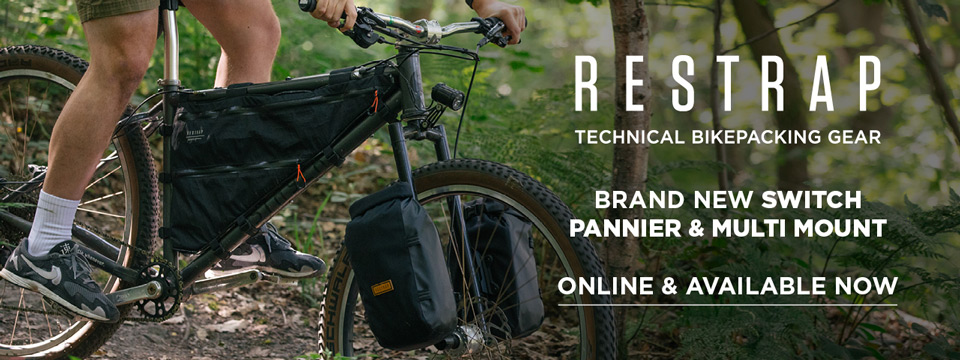The inaugural Across Andes bikepacking race, 1,450km from Chile to Argentina, brought in 30 racers from all over the world. We reached out to Ashley Carelock, the only participant in the solo female category, for a reflection of her experience. Find her race report here…
Words by Ashley Carelock (@ashcarelock). Photos by Pablo Ramirez (@ramias_photo), Paulina Pinto, AcrossAndes (@acrossandes), and Mariano López (@aventuradeados).
The morning of November 30th, 2019, I stand shivering at the start line of Across Andes as the only woman taking on the challenge. At 6:00 a.m. we take off at a conversational pace. I remain silent as my fellow competitors chat lively, Spanish circle around me, words I barely understand. Six months prior to entering the first ultra-endurance cycling event held in Chile, I began to have an itch to compete in a bikepacking race. After a quick search here on BIKEPACKING.com, I found Across Andes, and immediately started planning.
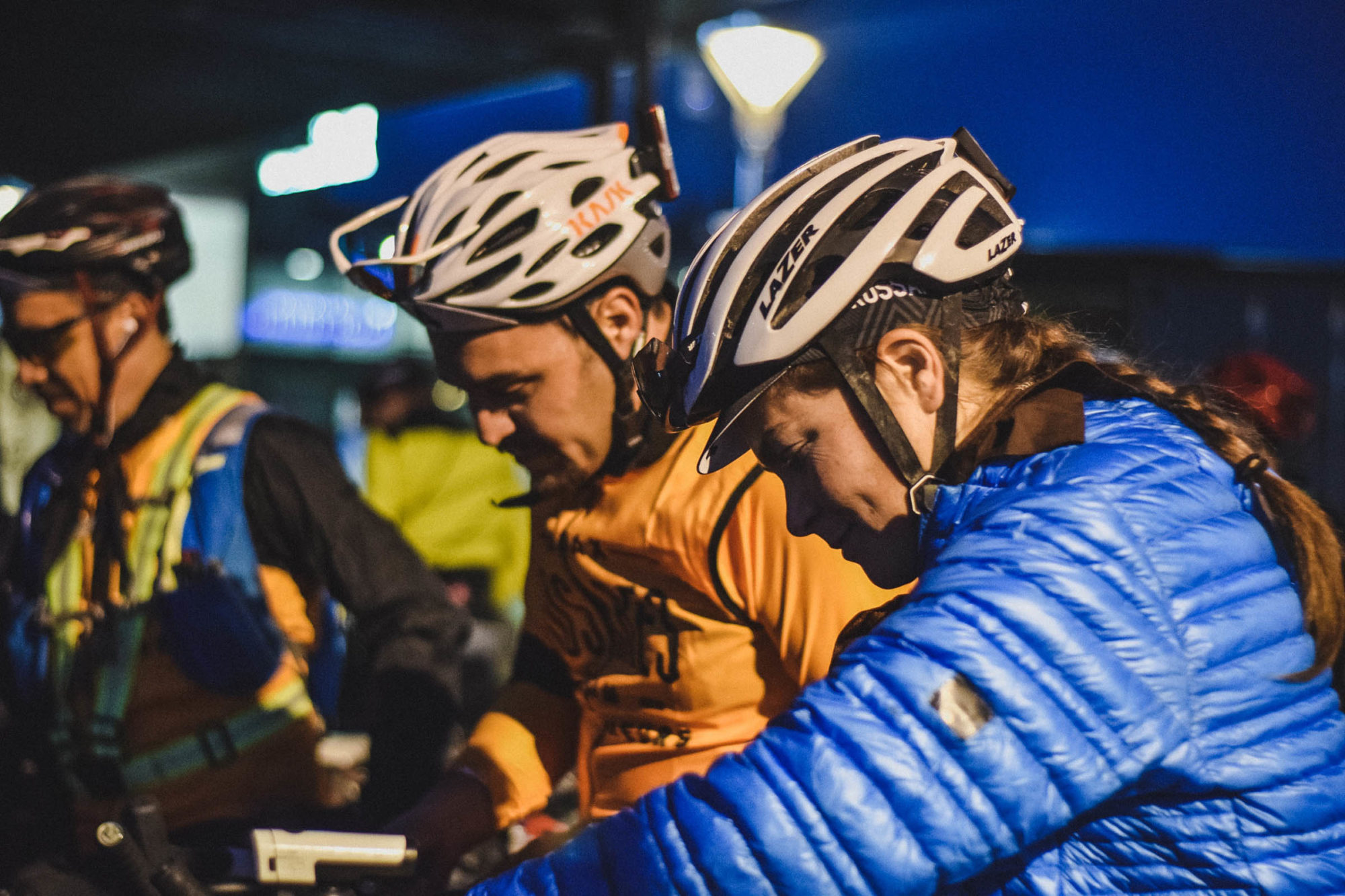
The race circumnavigates the Norte Chico region of Chile, where the Andean Cordillera rise abruptly from the Pacific Ocean, creating narrow, fertile valleys that contrast sharply with desert hillsides. The race is in the standard self-supported bikepacking race format with a set course and six checkpoints. I arrive at checkpoint one around 5:30 p.m. in third place.
Camping options are limited over the next 50 miles, so four other racers and I split a hotel room. I’m happy for the company, and even happier that three of them speak excellent English. All the men keep saying to me, “Ashley, you’re the only woman! All you have to do is finish and you’ve won.” I smile sweetly at them, but my internal monologue is more aggressive. I want to scream, “Don’t you know, I’m racing YOU.” Despite my competitive attitude toward these men, I cannot shake the feelings of admiration and friendship. Regardless of language, these are my people.
I leave at 1:00 a.m. This becomes my typical schedule. I ride to the checkpoint, eat a huge meal, sleep a few hours, and get moving shortly past midnight, putting in as much mileage in the cool hours of the night that as possible. The sun in South America can cripple even the strongest athletes, bringing them to a halt. As early as day two, the sun dictates the rhythm of the race. I move slower during the day, taking advantage of any shade. My only consolation while battling this enemy is found in the faces of my fellow racers. We’re racing against each other, but we’re fighting the sun together.
I make it to checkpoint two, still holding third place. I ride until sunset. As the air cools, I stop to get a few hours of sleep behind a bus stop. My sleep is interrupted by a herd of donkeys investigating the new intruder. The sound of a spinning hub soon wakes me. I expect to see one of the guys who stopped at checkpoint two, but it was a new face. Until this point I am in second place. This new guy just took second place by riding through the night. It takes me less than five minutes to pack up.
While contemplating my strategy at a bus stop, a police vehicle approaches. It’s 2:00 a.m. and I’m feeling a bit frazzled. Two officers step out of the car, and I pull out my cell phone, opening Google Translate, hoping we share the same idea of what constitutes good policing. They start the rapid fire Spanish that’s common among Chileans, and I give them my standard “deer in the headlights” look. I realize they are asking me to get into their vehicle. I refuse, naturally, and try and explain the race, what I’m doing, and who I am. The older police officer is explaining how dangerous it is for a younger woman alone on the streets. Simultaneously, the younger officer is inquiring after my name. This back and forth continues for at least five minutes. When the younger officer shows me my Instagram profile and asks for a selfie, a weight is lifted off my shoulders. It becomes clear that these officers are here to help. After our photo shoot, they patiently follow me out of town, escorting me to safety.
The road to checkpoint three is one of the most difficult and beautiful segments of the race. Lush valleys with pisco grape vineyards dot the cobbled road, bougainvillea drapes the walls of buildings, parrots sing in the trees, and I am smiling. The magic soon dissipates as the sun climbs above the horizon. I realize my water supplies are running dangerously low. Nearing the end of town, I ask an elderly gentleman if he knows of a place to purchase water. His face is weathered, but his smile is genuine, laughing lines rimming his eyes. With unexpected vivacity, he runs to the back of his home and returns with two large water bottles. He is happy to give me this water, a precious resource in Chile. His generosity is emblematic of the hospitality I so frequently encountered.
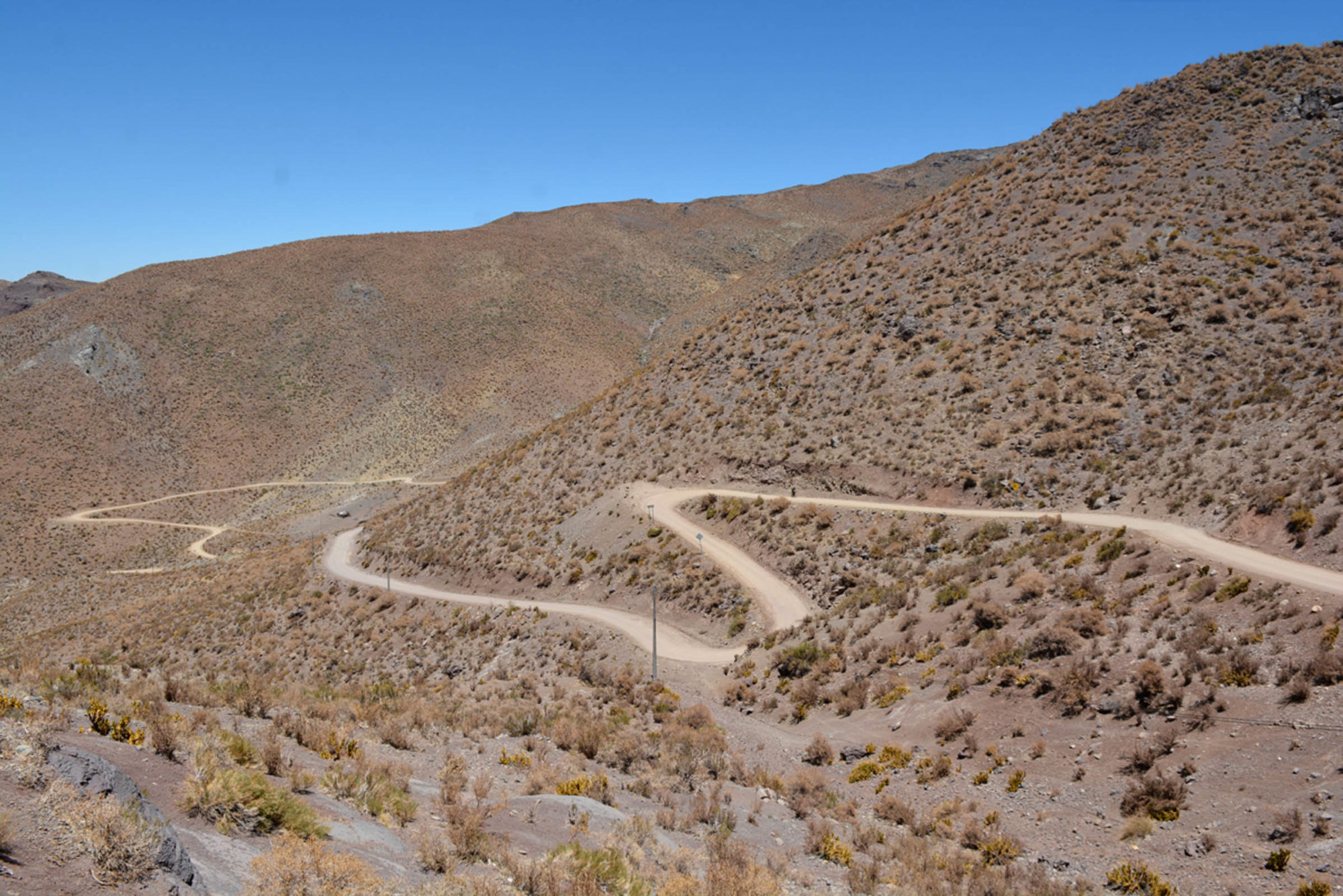
Hours later, washboards greet me as I make the final descent to checkpoint three—it’s not just hospitality that’s universal. I arrive, grab a hotel room, and rest for a few hours. At 11:00 p.m., I quietly leave. I have never experienced a night sky so clear, so brilliantly beautiful, with more stars than I ever knew existed. I arrive to checkpoint four before dark. I eat a huge meal, restock my supplies, and sleep about three hours. At 3:00 a.m. the next morning, I am back on the bike.
I know I will not make it to checkpoint five in one day. The distance from checkpoint four to five is over 200 miles, so I plan to stop in the town of Cabildo. It’s about this time that an unforeseen complication arises. I purchased a Chilean SIM card for my phone, which worked beautifully in terms of coverage, but I failed to monitor my data usage, leaving me unable to use Google Maps. I try my best to ask directions to a local hostel, but my poor grasp on the language impedes progress. Almost an hour later, I am wandering the streets in near tears, dirt on my face, people looking at me with pity in their eyes. I start to consider my camping options, but I know it will not be safe to camp so close to an urban area. I need to press on, but I also need food and rest.
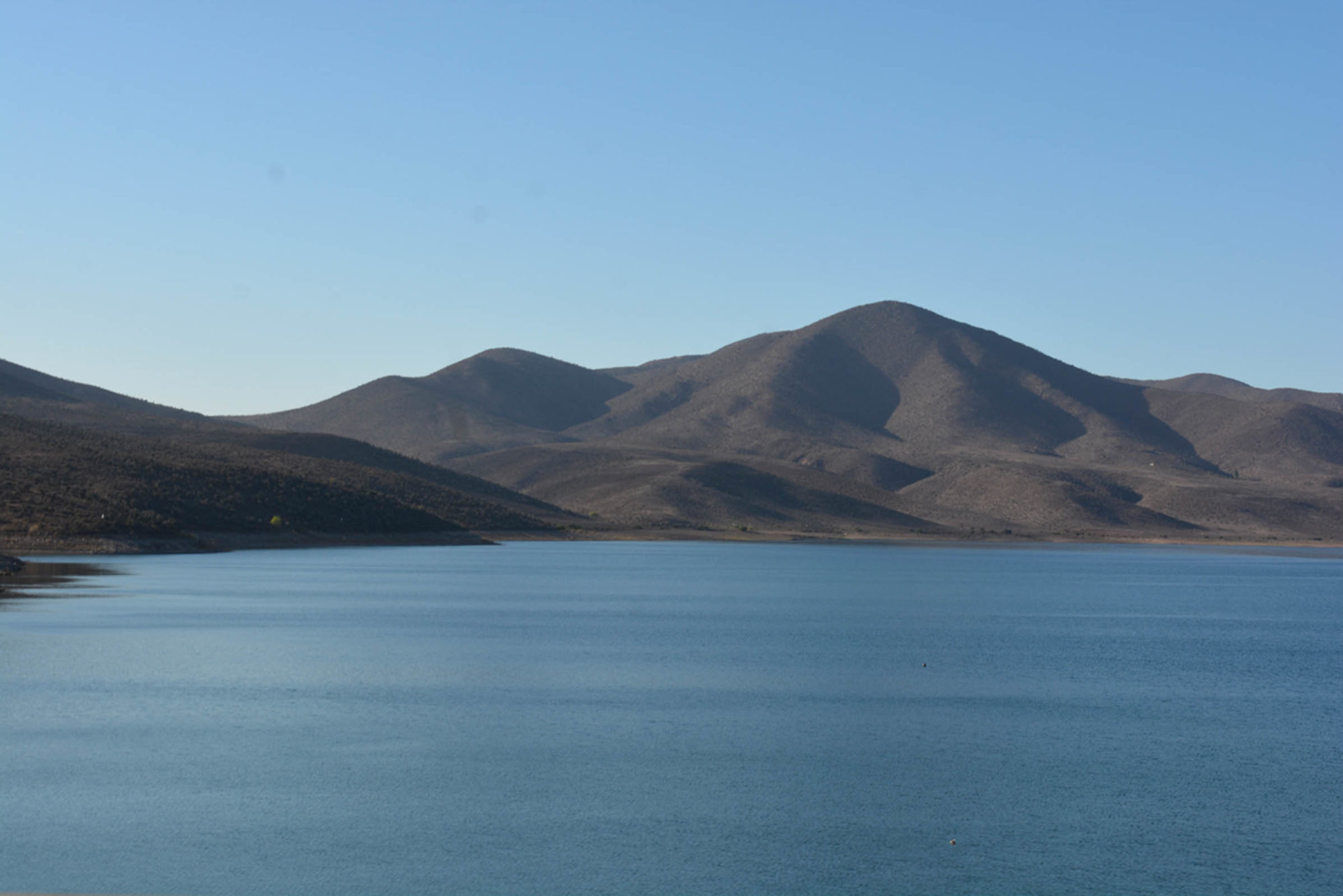
I stand on the street corner, paralyzed by exhaustion and hunger. And then, someone behind me says “Ashley!” I turn around to see a nice young couple smiling at me. They are crossing the street toward me and all I can do is wonder how they know my name. I tell them I need help. It quickly dawns on me that they know I need help, and they have come to show me the way to the hostel. I’m fighting desperately to hold back tears of gratitude, when a voice catches my attention. I turn around to see a group of youngsters, all holding cell phones with my dot visible on the live tracking website. This enthusiastic entourage guides me to a hostel. I rest a few hours before heading out on what turned out to be my final push.
The race organizers saved the most brutal and beautiful climb for the last day. I arrive to checkpoint six in fourth place. Throughout the race, my fellow competitors and I constantly reshuffle our positions, the heat of the sun forcing us into a similar rhythm. At checkpoint six, I know I can’t stop to rest if I want to finish in the top five. I settle into task mode, finishing at 2:00 am, in fourth place, having ridden 215 miles on the last day. I cross the finish line knowing that it’s not the expansive, beautiful views that bring me so much joy during this event, it’s the people. My fellow competitors, the race organizers and volunteers, the people of Chile, they’re the reason I excelled, and they are the reason I would go back.
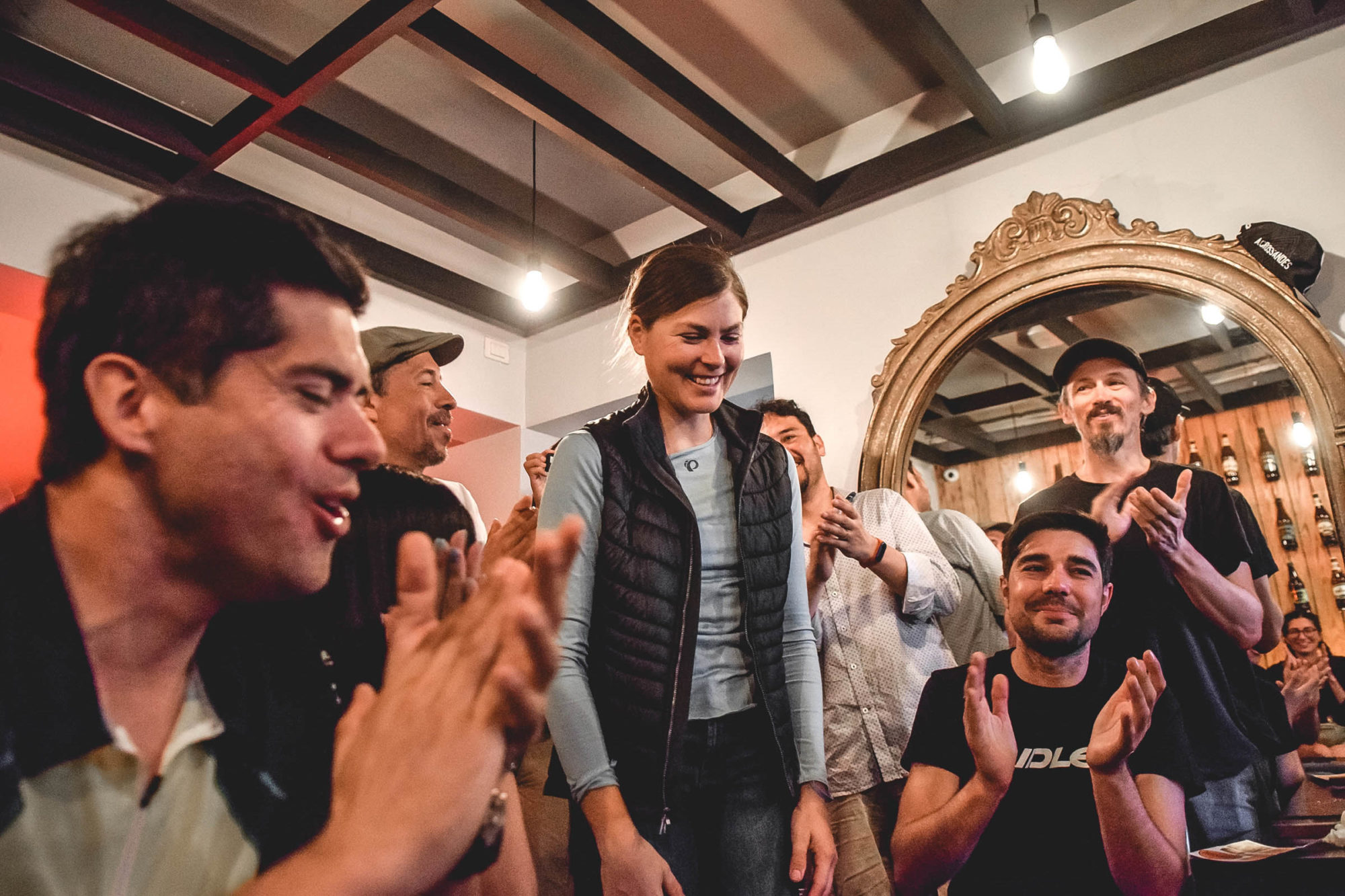
In the pairs category, Andrés Tagle and Rodrigo Canuto Errázuriz (Chile) took first place with a time of 4 days, 14 hours. Second place was taken by Óscar Pujol and César Mato (Spain) with a time of 7 days, 11 hours. Juan Manuel Torres and Víctor Valderrama (Chile) snagged third place with a time of 7 days, 17 hours. In the solo category, Rodrigo Rojo (Chile) took first with a time of 5 days, 11 hours. Cristián Muñoz (Chile) took second with a time of 5 days, 15 hours. And Willians Nascimento (Brazil) took third place with a time of 5 days, 17 hours. Finally, the only registered athlete in the solo female category, Ashley Carelock (USA), finished in first place with a time of 6 days, 2 hours.
A huge congratulations goes out to Ashley Carelock and the other participants at this year’s event. Stay tuned for details on the 2020 Across Andes on our events calendar.
Please keep the conversation civil, constructive, and inclusive, or your comment will be removed.



